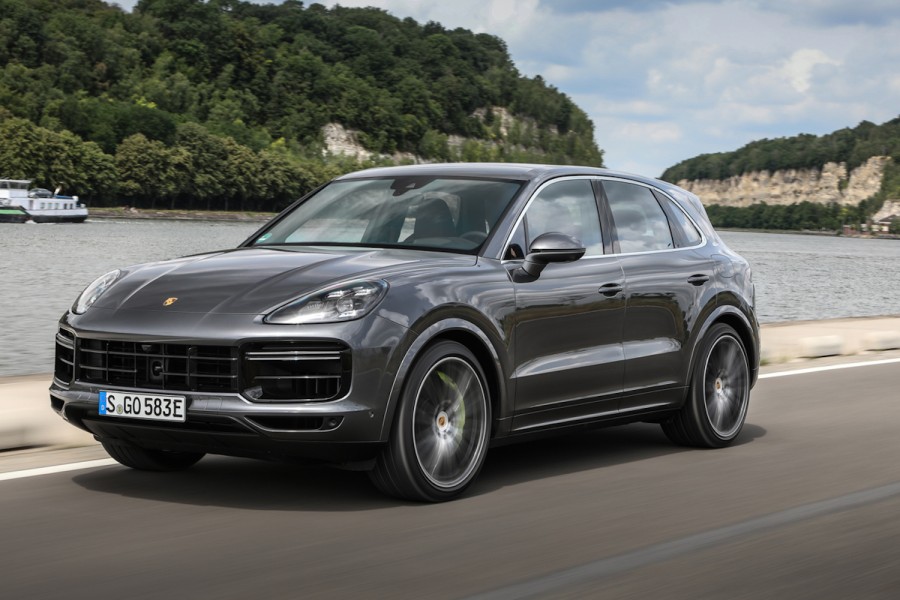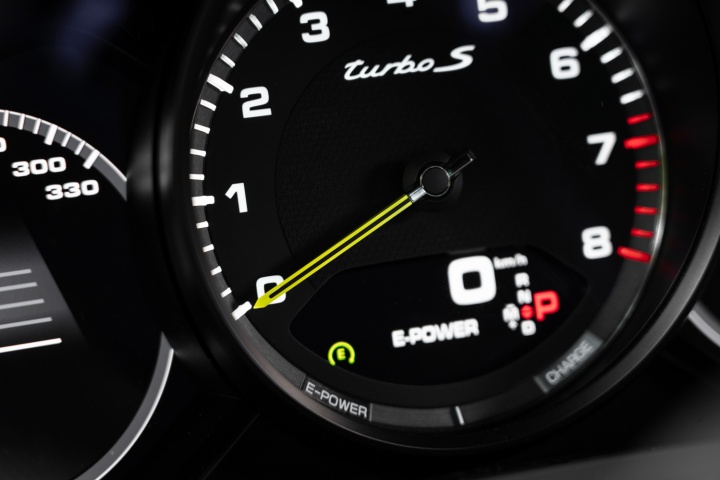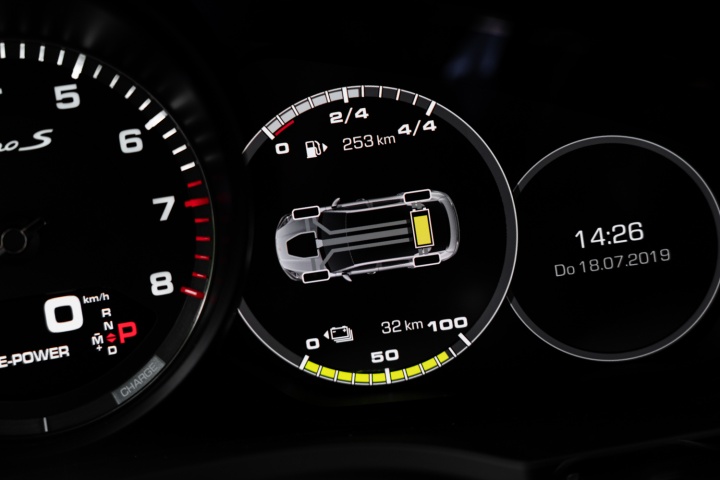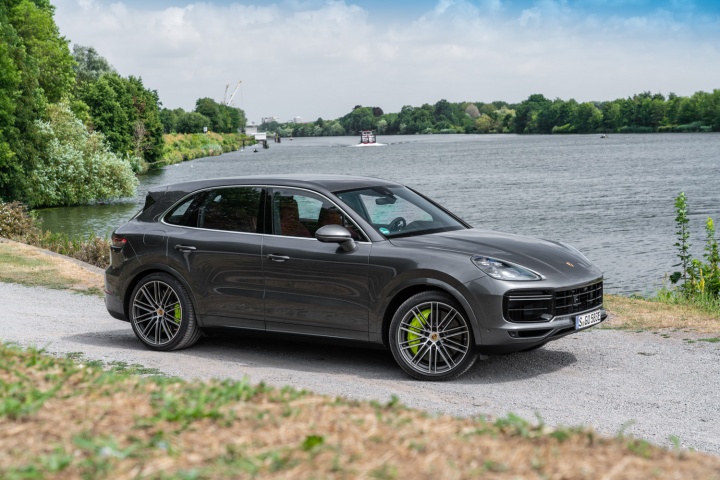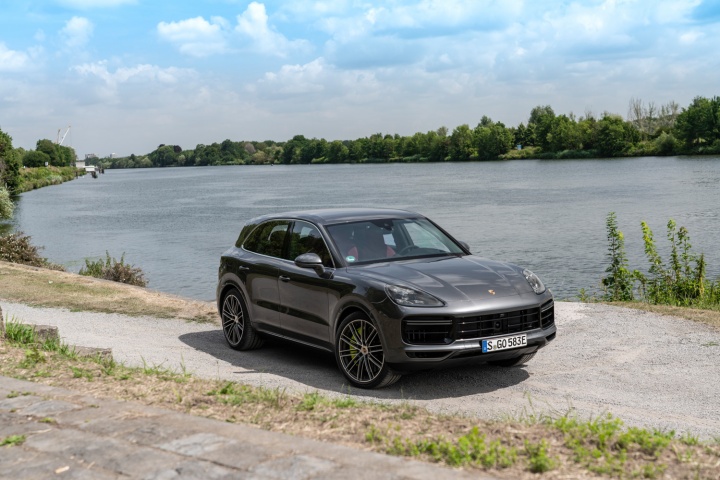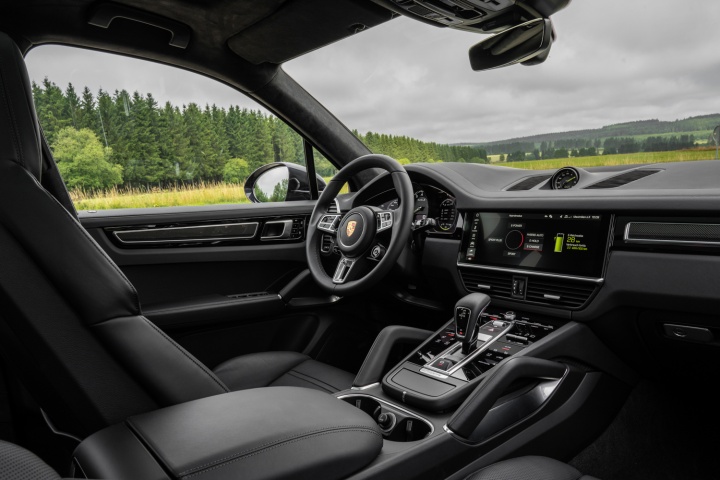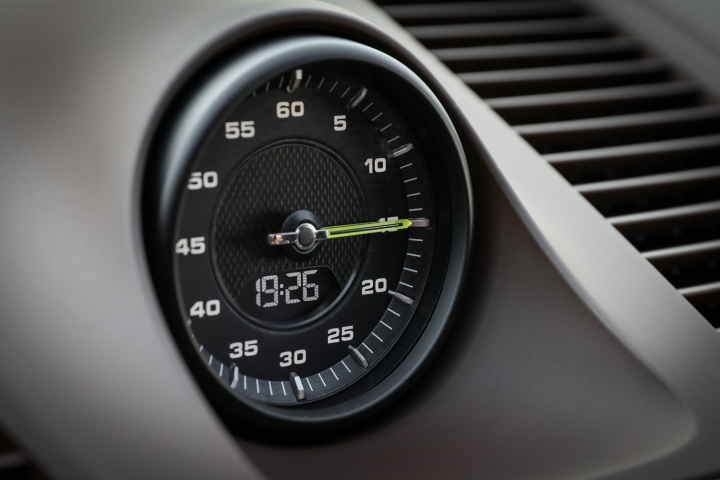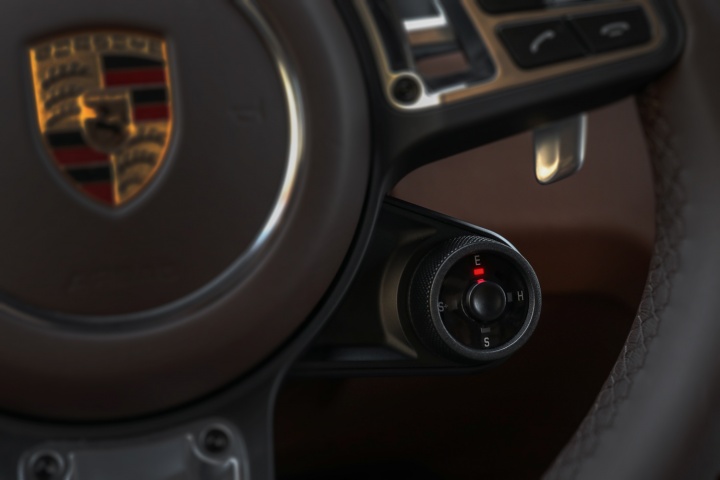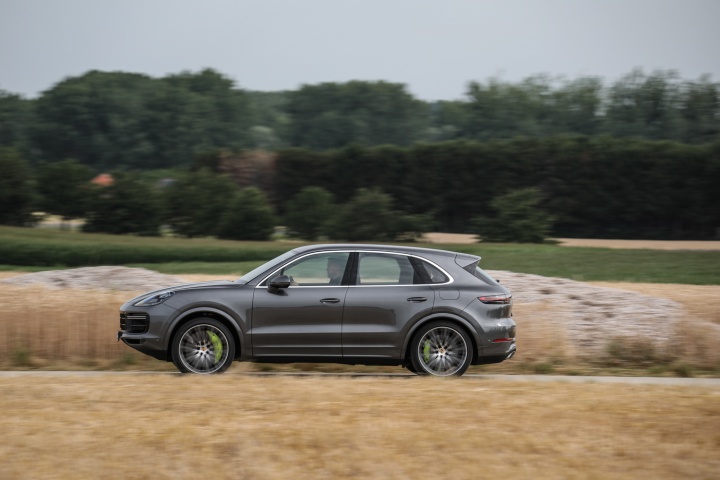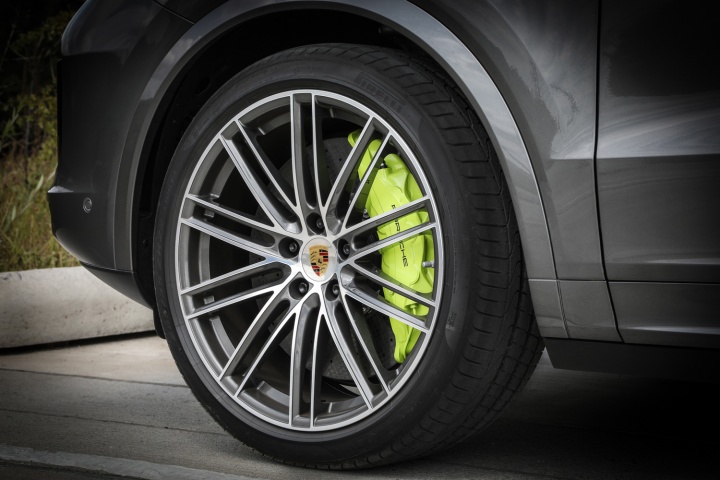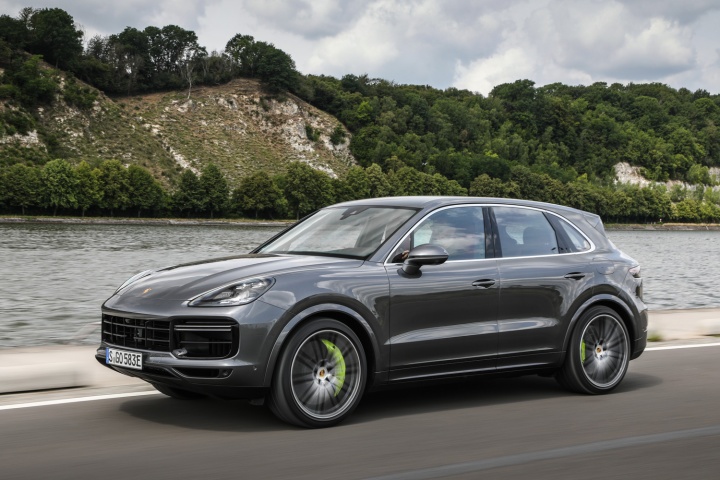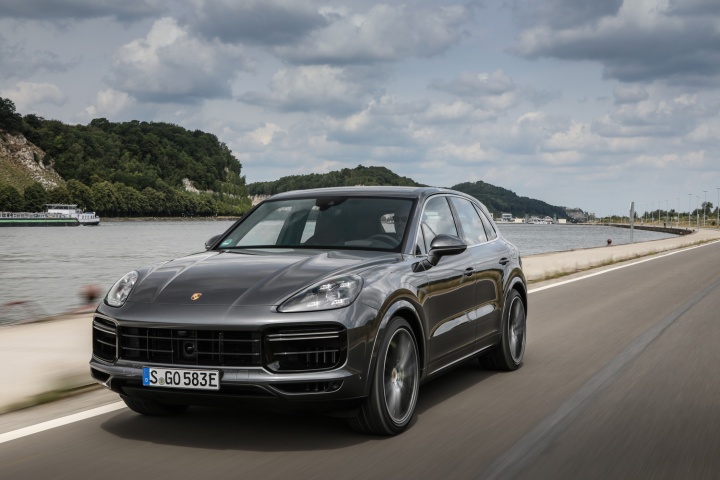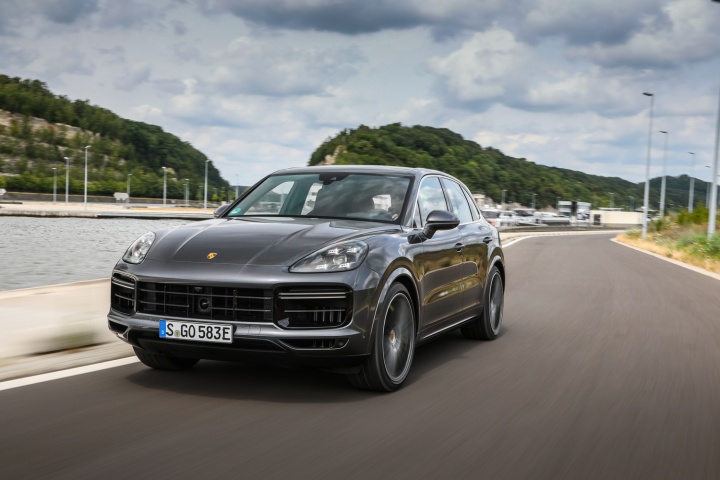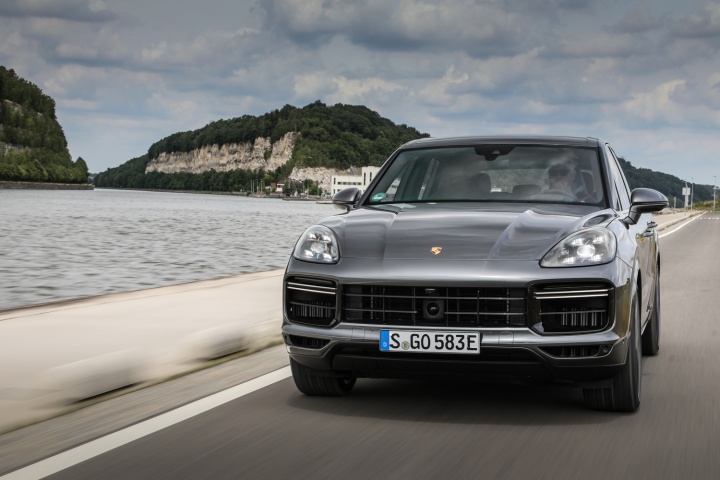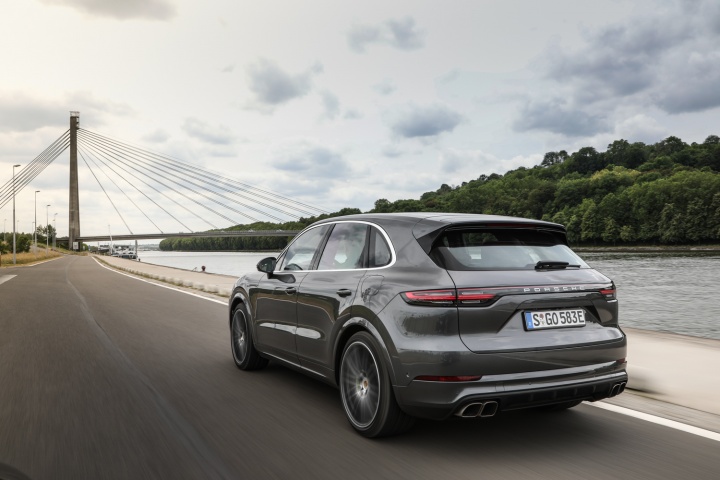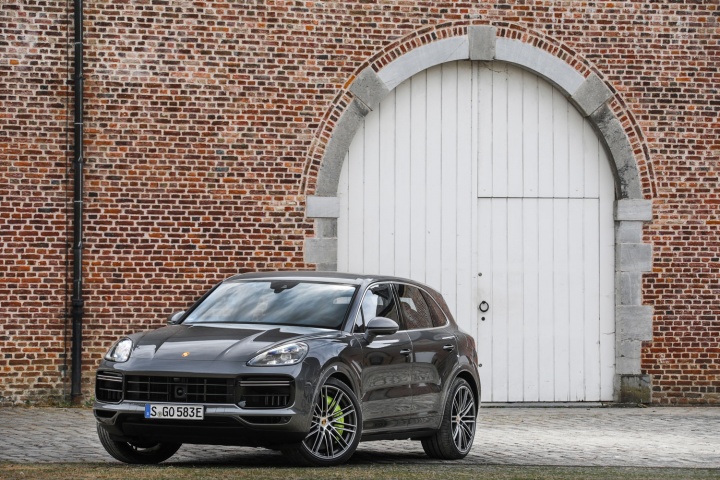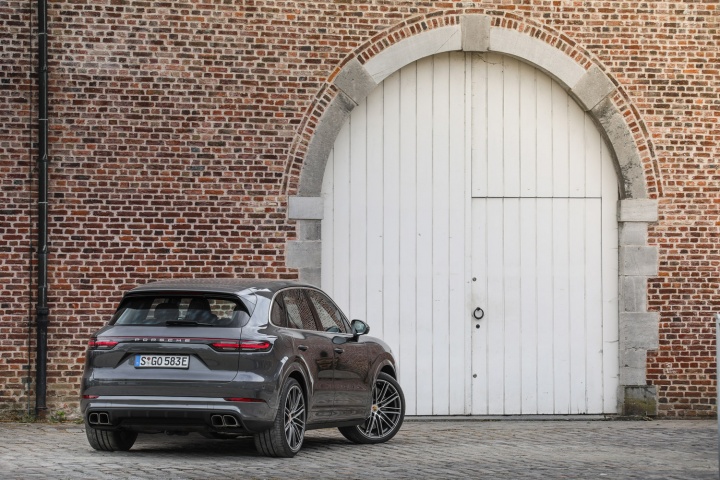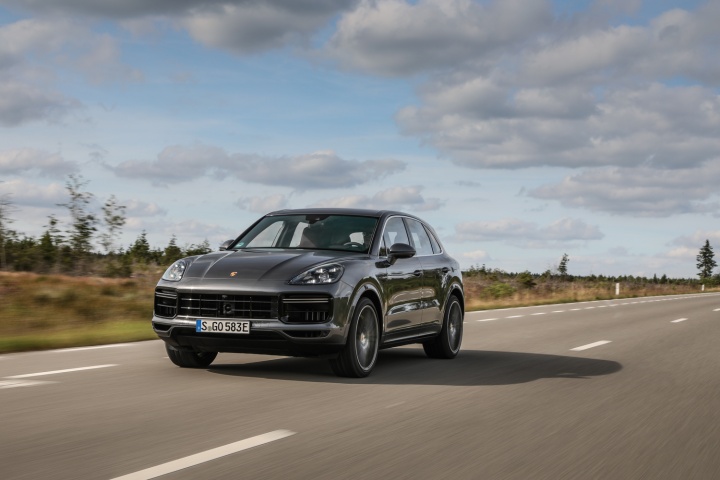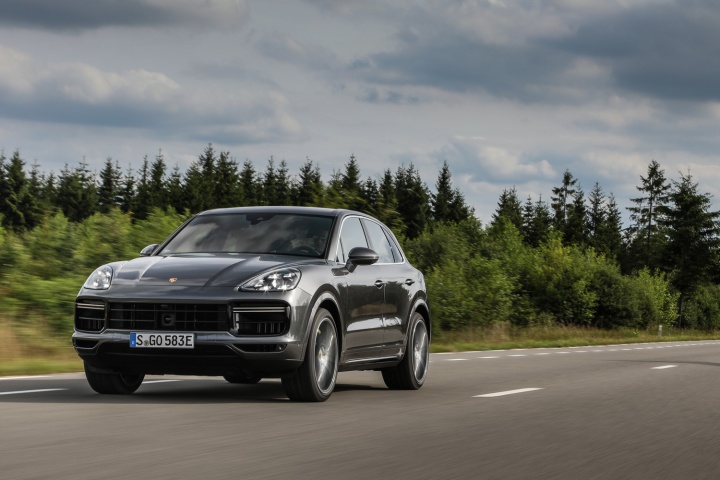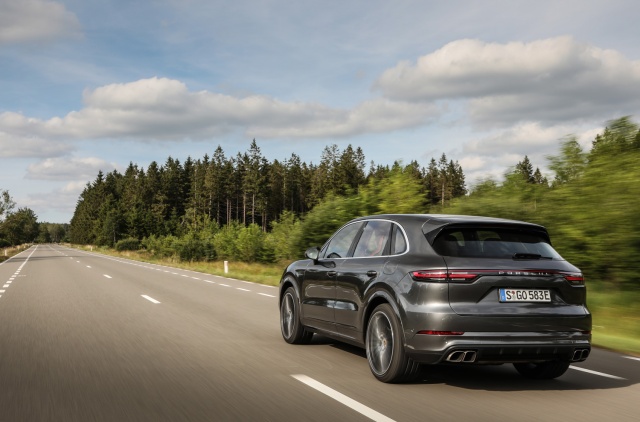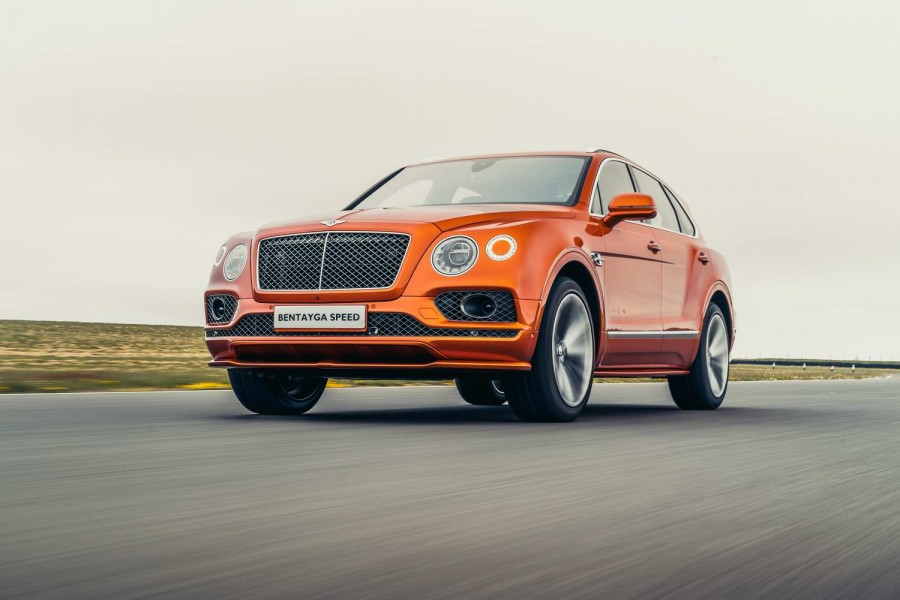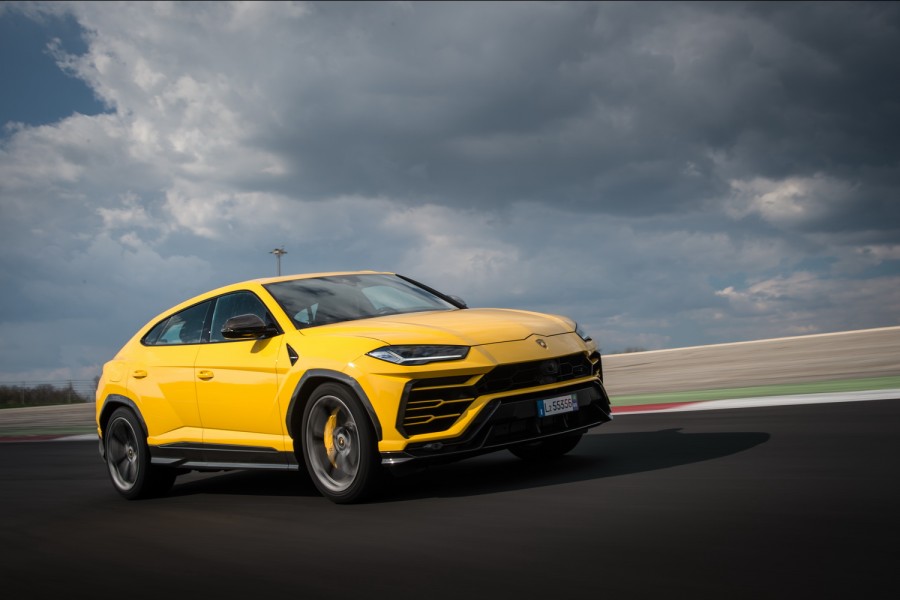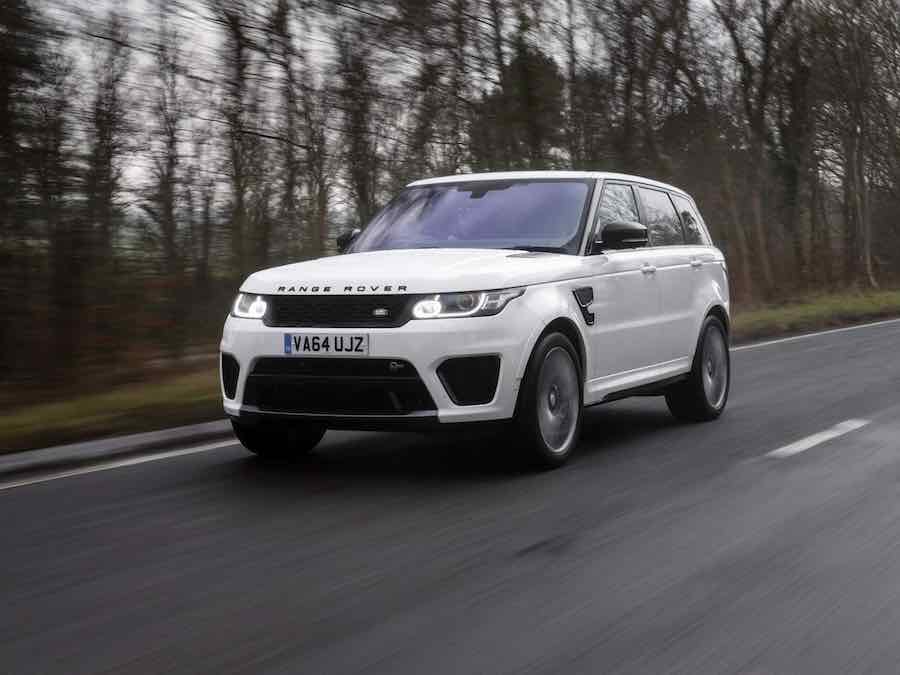What do you get if you cross the Porsche Cayenne Turbo with the Cayenne E-Hybrid? Well, you get the fastest SUV the German brand has ever made, in the form of the bonkers Cayenne Turbo S E-Hybrid.
In the metal
The maddest Porsche Cayenne of all looks very much like other Cayennes, truth be told. Which is not a bad thing; de-badge it and it'd be something of a sleeper. However, for the record, it gains 21-inch aerodynamically optimised alloys, quad exhausts, wheel arch extensions, a big roof spoiler and all the usual Acid Green details that denote a Porsche Hybrid - albeit, when it comes to brakes, the callipers can be optionally yellow because the Turbo S E-Hybrid gets the Porsche Carbon Ceramic Brakes (PCCB) as standard. This top-dog Cayenne comes in the regular SUV and also the new Coupe body styles, and if you go for the latter you get a panoramic roof as standard, with the option to go for a carbon-fibre top as an alternative.
Inside, it's as-per the Cayenne range, which means mainly digital and beautifully wrought. As a hybrid model, it gains additional displays in various places: for the left-hand dial of the instrument cluster, there are Performance Monitor, Boost Assist and E-Drive Assist screens; on the right-hand dial, Battery Level and Energy Flow information is added; in the speedometer, a Power Meter and a 'Ready' display indicate when the Cayenne is in EV mode; and on the central 12.3-inch Porsche Communication Management (PCM) interface is a Hybrid menu.
In brief, the Porsche Cayenne Turbo S E-Hybrid uses the drivetrain from a Panamera Turbo S E-Hybrid ported over into the Cayenne shell, only with two differences. On a minor note, the Cayenne develops an extra 50Nm when it comes to peak system torque, delivering fully 900Nm over a 3,500rpm-wide low-revs band. On a slightly more major note, it uses a 'true' torque converter eight-speed automatic, badged Tiptronic S, rather than the PDK gearbox of the Panamera, this down to towing concerns for which the Cayenne is better suited.
All told, with 680hp and 900Nm, the Cayenne Turbo S E-Hybrid is (on paper) ludicrously quick. The 0-100km/h run takes just 3.8 seconds, 0-160km/h comes up in 8.4 seconds and 0-200km/h is done with in a mere 13.2 seconds. It can even run 0-100km/h in 6.6 seconds on its electric power alone - and, speaking of which, it has a 40km zero-emissions range with a maximum electric speed of 135km/h. Nevertheless, with an additional 240kg to lug around, it's only a tenth quicker to 100km/h than the Cayenne Turbo, so is it worth the extra outlay?
Driving it
If we're going to be blunt in answering the question at the end of our last section of the review, then 'no' - the Cayenne Turbo S E-Hybrid isn't worth the extra outlay. Oh, it's undoubtedly deeply impressive. The fact that such a powerful, fast, big machine can start up and whirr off silently, as the E-Hybrid always does, is still startling, even in these days where EVs are far more commonplace than they were even five years ago. And there is unquestionably a more demented edge to the way the Cayenne Turbo S E-Hybrid goes unrelentingly at 250km/h (on a German Autobahn, of course...), whereas an electrically unadorned Turbo would start to even out its acceleration beyond 200km/h.
But that high-end performance gain is going to be unusable on any road with speed limits in force and, in all other regards, we'd rather have the lighter, cheaper, just-as-entertaining Turbo. You see, the Cayenne Turbo S E-Hybrid's weight gain is noticeable. You feel it on the brakes, where it takes some serious pedal pressure to get the charging mass of the Porsche to come back down to saner speeds; and there's also a weird pedal feel as the Cayenne is about to come to a stop, suggesting the twin aims of worthy kinetic energy harvesting and naughty carbon stopping power have not been 100 per cent successfully met. You feel the weight in the handling, where the car remains great fun, but not as sharp as other Cayennes, not as keen to get in to the apex. And you feel it in the acceleration - in all honesty, the first time we lit the fully charged Porsche up in the lower gears, it didn't feel appreciably any faster than the 550hp Turbo.
Of course, it's a long, long way from being a bad car, the Turbo S E-Hybrid. It still sounds magnificent, because a petrol V8 will always do that for you, and it's still one of the greatest-handling big SUVs with some of the best steering going. But the reality is that its additional 130hp/130Nm over a Cayenne Turbo do not fully counteract the 240kg of electrical ballast.
What you get for your money
We reckon the Porsche Cayenne Turbo S E-Hybrid and its Coupe relation will be tempting to buyers of high-end exotica in Ireland, mainly because the low Band A2 tax rating also means low VRT of 15 per cent. To that end, it should work out cheaper than the polluting 550hp Turbo model, with an indication that prices might be in the €160,000 ballpark for the regular SUV and €163,650 for the Coupe. It should have cheap running costs, thanks to its 40km electric range and aforementioned taxation requirement, but it's clearly not an inexpensive vehicle.
Summary
Technically superb and hugely intriguing, the PHEV Porsche Cayenne flagship is an understandable addition to the range. That it's preposterously fast and decent to drive is no surprise, but the truth is that it doesn't feel like a marked step up from a non-PHEV Cayenne Turbo. You can try the Cayenne Turbo S E-Hybrid Coupe to bring a little bit more sportiness to proceedings, but our advice for getting the best from Porsche's largest SUV is to look lower down the range for the sweet spot - maybe at the Cayenne S or the non-capital-T turbocharged V6 E-Hybrid instead.

